#HistFic
Explore tagged Tumblr posts
Text
DISTORTED PERCEPTIONS
94 notes
·
View notes
Note
Do you have some historical fiction recs that feature trans (preferably genderqueer/nonbinary) characters?
Sure do! First off, EE Ottoman is a treasure trove for this - A Matter of Disagreement, The Doctor's Discretion, The Companion... def check him out. Alexis Hall's another good author to check out; Something Spectacular in particular is exactly what you're looking for, as is Cat Sebastian's Unmasked by the Marquess. Oh, and you'll definitely want Caro de Robertis's The Palace of Eros.
Also check out Confessions of the Fox by Jordy Rosenberg, All the White Spaces by Ally Wilkes, Self-Made Boys by Anna-Marie McLemore, and Most Ardently by Gabe Cole Novoa, all of which star trans men or boys, and Wrath Goddess Sing by Maya Deane for a trans woman.
Coming up in 2025, keep A Gentleman's Gentleman by TJ Alexander and The Lilac People by Milo Todd, and then in 2026, TJ Alexander has another one that'll perfectly fit the bill called A Lady for All Seasons, so definitely keep them on your radar!
27 notes
·
View notes
Text
2024 Book Review #50 – The Gold Eaters by Ronald Wright
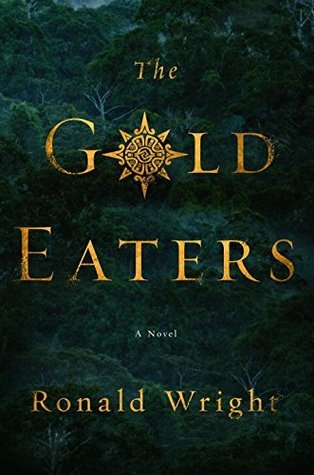
This was the rare book I had literally never heard of before opening it - a birthday gift from a friend, and the rare one not resulting from some sort of conversation about what books we’ve been meaning to read. It’s the first historical fiction I’ve read in year and years, so I can’t really say how it stands in terms of the rest of the genre. Reading it for myself, I had a great time – though the book did seem confused about which part of ‘historical fiction’ it actually cared about.
The book (primarily) follows Waman, an adolescent boy just coming of age in a nowhere coastal village on the edge of the ascendant and seemingly world-spanning Inca Empire, the demands and products of which are the only outside intrusions upon his life. Feeling stifled at home after his father returns from a period of conscription building roads and bridges in the highlands, he runs away to have some adventures and become a man on a trading ship. And in a stroke of truly cosmic misfortune, on his first voyage they run into a scouting expedition run by one Francisco Pizarro, investigating rumours of a strange land called Peru and its cities of gold.
Waman is abducted and conscripted into service as the Spaniards guide and interpreter. He spends the next decades of his life with an unwilling front-row seat to History unfolding, making and losing friends and endlessly searching for his family and childhood love as the whole world is overthrown again and again around him.
The great strength of the book, I think, is how it manages to portray the civilizations of the past as both familiar and awe-inspiring. The Spanish and Inca Empires are both portrayed almost like fictional kingdoms in a fantasy novel, simultaneously defamilirized and made new and strange, and presented from the point of view of someone whose ideas of normal are at least as strange to us as any of the peoples he meets. More than that, it never stops feeling like a world where people actually lived and worked, one that made sense on a human scale where all its inhabitants could find a place for themselves (or else be forced into one). It was never exactly confusing either -even if it does feel a bit like cheating to jump between points of view to ensure there’s a wide-eyed foreigner needing things explained to them wherever it’s required.
Wright is apparently a historian by trade, and has mostly previously written nonfiction. Given the sheer cornucopia of details about both daily life and the exact sequences of events that led to Spanish dominion, I entirely believe it.
As history, the two things that I most took away from the reading experience were the portrayal of the Inca at their peak as a really vital, world-shaping imperial society on the one hand, and just how drawn out and contingent the process of conquest was, on the other. The book does a great job getting across just how incredible the road- and bridge-building projects and the great imperial cities were, and how rich and organized a society it was (without ever entirely falling into portraying the Inca as some prelapsarian utopia, either, which is how a great many works in the general space seem to screw this up). It then also does an excellent job getting across just how apocalyptic the smallpox epidemic that swept through the empire was, and how ruinous the wars of succession that followed. Pizarro triumphed because he was facing an empire that was a death-choked ruin at war with itself, manipulating and extorting an emperor with many enemies and not much way in the way of skills or legitimacy except that everyone ahead of him was dead.
The other thing that did strike me is that – the historical narrative as I have always received it is that the Spanish conquered their American empire in one single, cataclysmic moment of contact, disease and violence and simple shock leaving them ruling the better part of a continent before anyone even realized what was happening. Which I’d intellectually known was false, but the book really does an amazing job dramatizing the fact that the building of the Spanish empire was a multi-decade – multi-generational, really – affair, and far more a matter of politics and logistics than initial shock an awe.
My main complaint with the book is the matter of genre – it spent the entire back half continuously changing its mind about what it wanted to be. Is this Waman’s story, a man coming of age and scrambling to form a life for himself as the tides of history destroy and remake his world around him and buffet him hither and yon? Or is he just a convenient POV to what’s essentially a rationalized history of (the initial chapters of) the fall of the Inca, improbably standing at the side of and sharing drinks with one famous personage after another to hear their thoughts and see their pivotal deeds? The book never quite settles on an answer, and so Waman’s own arc and personal concerns shift from feeling like thin connective tissue to the emotional core of the story and back several times. The issue gets worse in the latter parts of the book, where it just outright shifts into omniscient exposition of historical events at times.
Also on goodreads this is tagged as a romance and – okay so there is a romance in this book. But it’s the third or fourth most important relationship at most. For the vast majority of the page count it’s just a childhood crush Waman nurses as motivation to get home. If you come in expecting this is mostly be a love story you are going to have a bad time.
But yeah! I should read more historical fiction.
45 notes
·
View notes
Text
DISTORTED PERCEPTIONS NOVEL
PAULATHEWRITER.COM
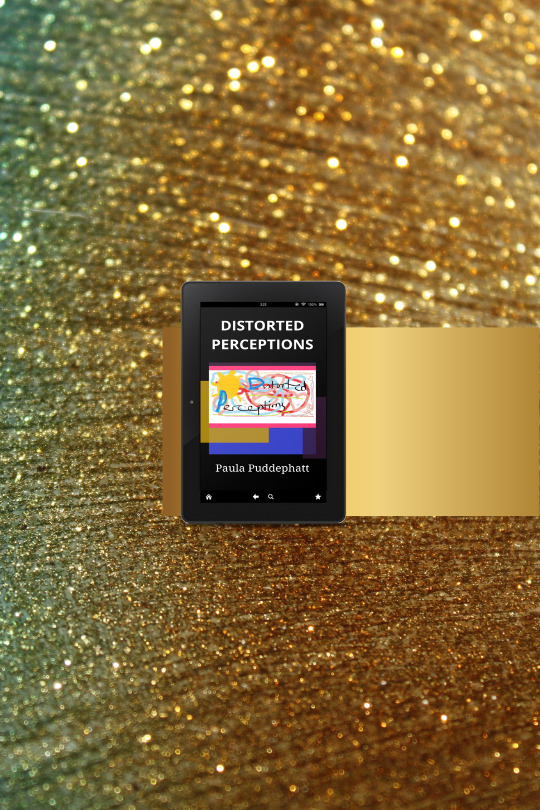
472 notes
·
View notes
Text


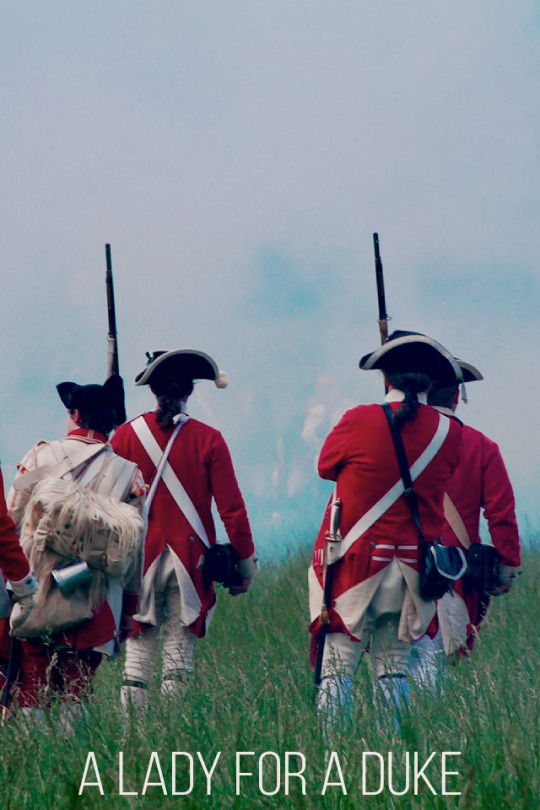



Read in 2024:
A Lady for a Duke by Alexis Hall
❝ Damn the world. The world told you that you had to live the life it shaped for you, and you defied it. The world told me that I had to be as my father was, and I defied it, or am trying to. We can make our own world, Viola, with our own rules. ❞
#litedit#a lady for a duke#alexis hall#romanceedit#lgbtq books#historical romance#period romance#queer books#trans books#lgbt literature#regency romance#book moodboard#romance#histfic#viola carroll#justin de vere#books2024#read in 2024#mystuff#my edit
46 notes
·
View notes
Text
Distorted Perceptions Novel
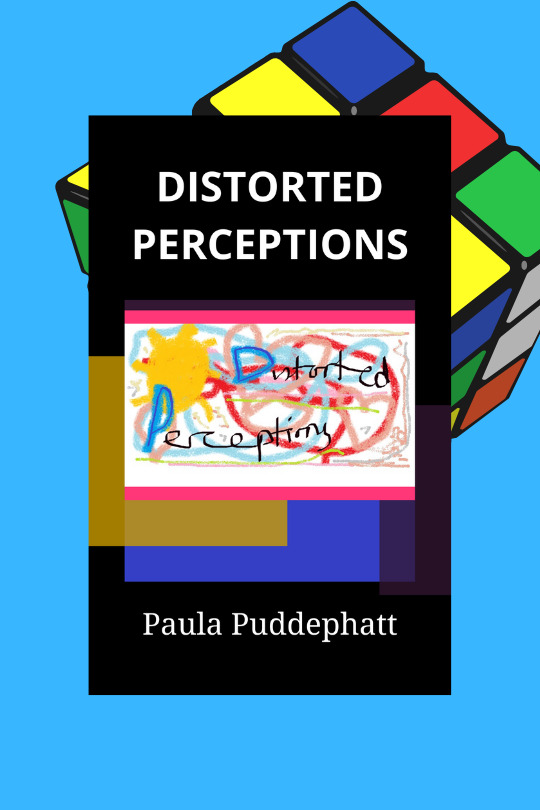
369 notes
·
View notes
Text
DISTORTED PERCEPTIONS NOVEL - 1980S, 90S

182 notes
·
View notes
Text
NOVEL DISTORTED PERCEPTIONS
paulathewriter.com
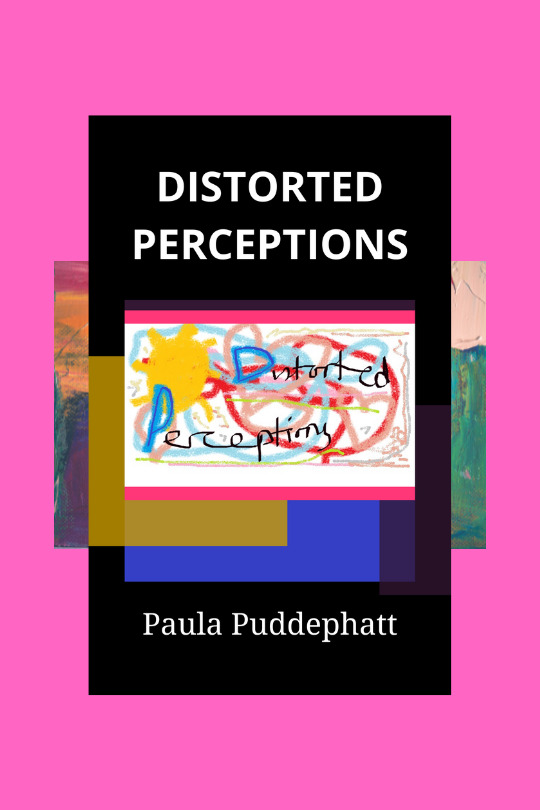
❤
130 notes
·
View notes
Text
First book I finished in 2024
The Glutton by A K Blakemore is a historical fiction novel; a reimagining of the life of the real French soldier Tarare who was said to have an unfathomably large, at times inhuman appetite. This was the first book I finished in 2024, and I finished it in two days over two long sessions. I'm normally anything but a fast reader and I actually haven't finished any of the last three books I purchased before this. My attention is fleeting, hard to be captured and easily lost.
The Glutton captured and held my attention for the entirety of its length.
I had never read anything by A K Blakemore before, so I didn't know what I was in for, but I was immediately charmed by her style. I don't often enjoy flowery language and poetic prose, but somehow, it really worked for me here. The story of Tarare is a gritty, gloomy and at times disgusting one, but even the darkest parts of this book are told in a narrative voice so beautiful that it makes them seem idyllic. This deeply unsettling contrast had me absolutely engrossed until the end, and when I had turned the last page, I was genuinely sad that it was over. Which made for a weird mix of emotions, given how disturbing the subject material was at times.
And I have to underline that it was, indeed, disturbing.
I have consumed a lot of dark literature and am very desensitized. Most of the time, I don't enjoy horrific fiction because the elements contained within strike me as senseless, gratuitive and void of substance. I didn't have that feeling with The Glutton. There was a lot of grittiness, yes, but it was never just for “the effect”. Every time the writing made me feel uneasy, it directly related to the inner world of the protagonist and the circumstances of his life, the current time period and its hardships. And even if it didn't have any kind of meaning, it was still told in such stunning prose that it almost felt romantic. Again, none of the things that happen in this book are comforting or beautiful, but with the way they're being told, it almost deceives you into believing they are.
Another thing that I loved about this was that the prose never seemed overdone or pretentious. It was more like a steady ebb and flow perfectly tailored to any given point in the story. It never seemed out of place or ill-fitting while at the same time being VERY MUCH out of place and ill-fitting, but it was always intentional and highly effective.
After I finished this book, I felt genuinely empty, and I just knew I was going to miss it. Now, a week or so later, I do. I really feel like this book is something special, and I'm definitely going to pick up The Manningtree Witches (also by A K Blakemore) as soon as I get around to it. The Glutton was not only a huge joy (though joy might not be the best word for it) to read, it actually made me want to read more. That's also why I wrote this review in the first place. I hope more people check this out and like it as much as I did.
#historical fiction#book review#dark literature#bookblr#book recommendations#histfic#disturbing#books and novels#amazing book#a k blakemore#a. k. blakemore#the manningtree witches#the glutton#the glutton review#spoiler free
28 notes
·
View notes
Text
youtube
In His Mind
6 notes
·
View notes
Text
The most common word in the mouths of American soldiers has been the vulgar expression for sexual intercourse. This word does duty as an adjective, adverb, verb, noun, and in any other form it can possibly be used, however inappropriate and ridiculous in application. Many soldiers seem hardly able to utter a sentence without using it at least once. Apparently they derive a vague satisfaction by invoking the word itself, habitual and thoughtless as its employment becomes.
j glenn gray, the warriors: reflections on men in battle (1959)
Some scholars have argued that during and after World War I and World War II, people began to swear more than they had in the past. The particular horrors of those wars—the constant threat of death by poison gas and machine guns, trench warfare, incendiary bombing—led to feelings of rage and helplessness that needed an outlet in frequent swearing. […] Swearing in the armed forces was so ubiquitous that fuck really wasn’t such a bad word.
melissa mohr, holy shit: a brief history of swearing (2013)
[Obscene expressions] are applied to situations and experiences of crucial importance to the person but which are apparently devoid of sexual connotation. They are merely expressive of the conception of virility, masculinity, and freedom from social restraint of an exclusively male world.
frederick elkin, “the soldier’s language” (1946)
Some of the licensed obscenities of soldiers may be grounded in a folk belief about the advisability of turning away any compliment with a deprecatory remark that might serve to ward away the evil eye. “Fuck you,” “go fuck yourself,” “get fucked,” “fuck off,” and “fucking” used as an adjectival modifier were derogatory usages that were voluminously used by some soldiers to deride or devalue anything of a serious nature that was said by anyone.
les cleveland, “soldiers’ songs: the folklore of the powerless” (1984)
#and in conclusion#any sentence in band of brothers that doesnt include fuck is ahistorical and cowardly#in the wastelands of google trying to find the evidence i know exists on the contemporary decisionmaking re profanity in the show#and found a great deal of very interesting greatest generation dismemory abt how grandad didnt say those naughty modern words!!#a dismal gay lincoln attitude of ‘modern degeneracy creeping backward and infecting history’#and to that i say haha suckers heres citations#histfic
122 notes
·
View notes
Photo

(via From Chapter Thirty-Four - Distorted Perceptions (WIP))
76 notes
·
View notes
Text
Violins and Violets - Series - WIP page
1784: Katharina Schmidt and her brother Hans grew up composing and performing music for royalty all over Europe. Now they are adults, only Hans is allowed to pursue his music, while Katharina's father tells her it's time to find a husband and settle down. Katharina's attempts to do as she's told only convince her that it's not what she wants to do, and she must decide how far she's willing to go to keep making music.
Hello, friends! It's been a minute since I updated the links on my blog, and I have just seen that I still have the "Beta Readers Wanted" post linked to the "Violins and Violets (WIP)" button... from the draft I finished and started querying in 2019 / 2020!
Things have... changed somewhat since then...
"Violins and Violets" is now a series, of (I expect) five books. None of them have titles yet, so I'm just referring to them as "Violins and Violets 1," etc. I thought it was time to make a new WIP page.
Book 1 tag - WIP page - first draft completed in December 2023, second draft in May 2024. (Earlier titled "Ladies Don't Write Music" - but this may be a better name for Book 2.)
Book 2 tag - WIP page - first draft completed in January 2024, now writing second draft in June and July 2024.
Book 3 tag - early planning stages, hoping to create outline in October 2024, with a view to writing the first draft in November and December 2024. Hoping to redraft in 2025.
Book 4 tag - hoping to plan and draft in 2025.
Book 5 tag - hoping to plan and draft in 2025 or 2026.
Series tag - all posts made about "Violins and Violets" since I realised it needed to be a series, no matter what book I'm talking about.
Everything "Violins and Violets" - the whole story, right from the beginning, when I started writing the first draft of a single book for Camp NaNoWriMo in April 2018.
One-Shots - short stories that I've written for the "Violins and Violets" world.
"Vogeltje" - another novel that takes place in the same world, and features some of the same characters.
I'm trying to bring each book in somewhere around 75,000 words, taking three months to write a first draft, and two months for each subsequent draft. I find it easier to focus on the story proper when I write quickly and regularly, so when I have a draft on the go, I try to write every day. Between drafts, I am trying to take whole months off writing, so that I can rest my creative muscles, as it were.
You can follow my progress here on my writeblr, and on the NaNoWriMo website.
Characters:
Katharina Schmidt - musical prodigy and composer who performed for royalty as a child, but is no longer allowed, because she's a woman. Disguises herself as "Sebastien", and flees Salzburg to start a composing career in Prague
Hans Schmidt - brother of Katharina, who is also a musical prodigy and composer, but is allowed to pursue his music as an adult.
Franz Schmidt - solicitor; father of Katharina and Hans, who wants to see his daughter married well enough to put silly ideas of music out of her head.
Julia Schmidt - lady of leisure; mother of Katharina and Hans; wife of Franz, who loves to make tapestries and knitted garments; wants the best for her children and is willing to let Franz decide what this is.
Barbara Kirkmann - housemaid to the Schmidts, Katharina's closest friend and confidante.
Elisabeth Meyer - daughter of Franz' boss, Katharina's first "acceptable" friend, and the oldest sister of many siblings; keen to get married and start a life of her own.
Miléna von Tritten - Elisabeth's best friend, and daughter of one of the Meyer firm's wealthiest clients, Baron von Tritten; expected to marry a noble, but totally absorbed in Johann Schneider.
Johann Schneider - training to be a magistrate, under pressure to get married, but totally uninterested in... anyone? All the ladies want him; none of them can catch him. Absolutely tone-deaf, but loves to watch musicians play; friends with Katharina.
Louisa Schneider - Johann's younger sister, also tone-deaf, but keen to become a musician under Katharina's tutelage.
Magdalena Fialová - an opera singer who wants to get more young women into music; one of "Sebastien's" first and best friends in Prague.
Miklós Kovács - a fellow violinist who persuades the management of the Malá Strana Opera House to give "Sebastien" an audition. Best friend of Magdalena, and very close with "Sebastien".
Background:
Yes, Katharina Schmidt is based on Maria Anna "Nannerl" Mozart, who deserved a much better life than she got. I have always wondered what would have happened if she had defied her father when he told her to stop composing. Would she have known as much fame as her brother?
Yes, Katharina Schmidt is a lesbian. That's because she's only based on a real person; she isn't actually Nannerl Mozart. I have no idea what Nannerl Mozart would have called herself, or how she felt, and I think it would be rude for me to try to guess. This part of Katharina's character is inspired less by history than by my own experiences and desire to see more representation of Queer people in historical fiction. (She's not the only person in the series who isn't straight! Who are the others? You'll have to read the books to find out... or just follow here; I'm yappy about it.)
#writeblr#blog#violins and violets#violins and violets series#historical fiction#amediting#sapphic#histfic#scrivener#wip page#wip masterpost#writeblr wip#work in progress
16 notes
·
View notes
Text
IS IT POSSIBLE TO SUCCEED ON MERIT ALONE?
Against the odds...
5 notes
·
View notes
Photo

(via Writing Modern Historical Fiction)
40 notes
·
View notes
Text
I Have a Ream!
In response to the medical bills I am slowly but surely accumulating at the moment, I decided to create a page on Ream for those who would like to support me and my writing in exchange for bonus content, behind-the-scenes posts, and whatever other fun stuff I come up with.
What is Ream? It's like Patreon, but just for writers! Here are the tiers for those interested:
$0 (free follower option): access to bonus short stories/scenes from all Revolution books and access to my community posts
$3: all that PLUS access to longer short stories, the most recent book released (currently Treasonous Practices), 25% off all previously published books
$5: all that PLUS access to my full backlist of Revolution books, ability to help me name stuff
$10: all that PLUS a signed paperback copy of each book released along with book/series-specific swag
So if you would like to help out your friendly neighborhood queer histfic writer, I would forever appreciate you!
#indie author#self promo#queer author#queer books#histfic#historical fiction#queer histfic#queer historical fiction#i just spent the last six hours doing this and now i'm exhausted
8 notes
·
View notes